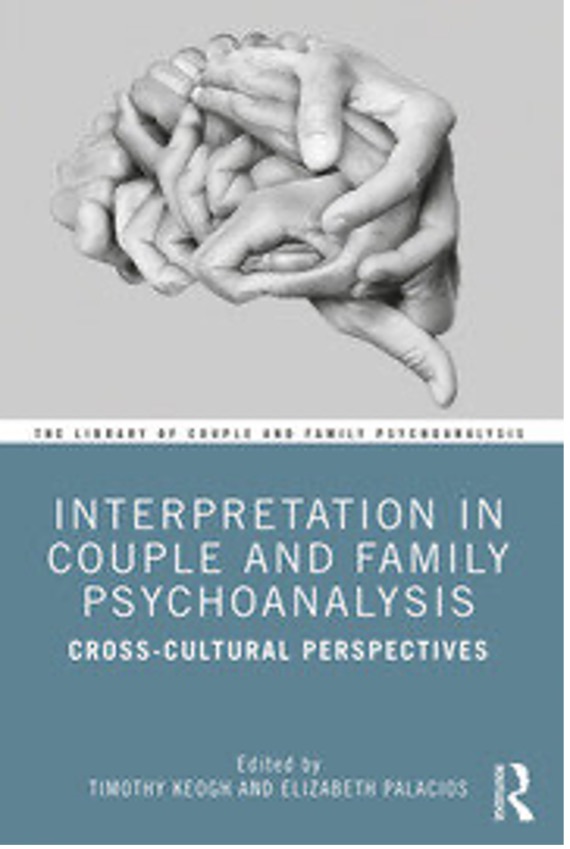COMMITTEE OF THE MONTH SEPTEMBER 2023
Psychoanalytic Perspectives of Couples and Families
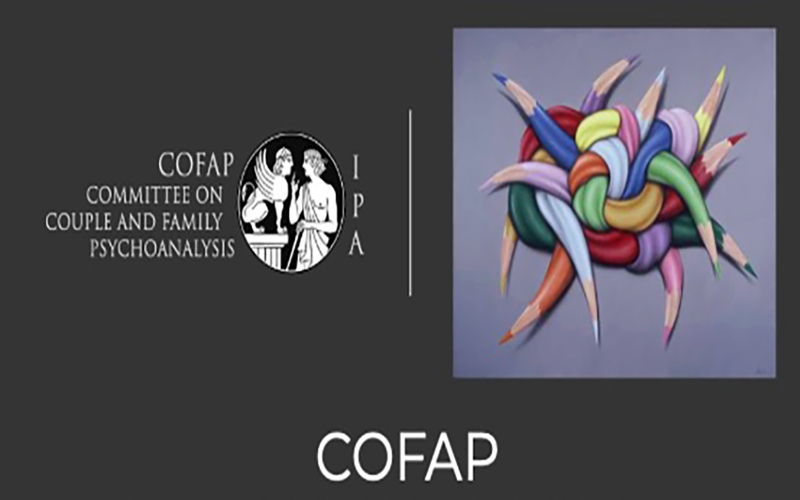
Important challenges for our psychoanalytic theorization and the consequences on our clinical work must be addressed nowadays. The clinical practice of couple and family psychoanalysis is very much in need in our contemporary world, many couples seek out psychoanalytic intervention to help them with their conflicts, and many child and adolescent psychoanalysts need psychoanalytic assistance for the family of their patients to contribute to their improvement. War in the world context and social crisis produce suffering in the linkage world of all human beings.
The subject to which most psychoanalysts are fundamentally dedicated is the individual, his internal world, his internal objects, his conflicts, his processes of subjectivation, and the unconscious psychic reality which is its most outstanding constitutive hypothesis. How this knowledge was constituted and the technical modality it acquired gave us the possibility to approach the individual intrapsychic reality by isolating it from other factors. These factors have to do with the intersubjective and trans-subjective spaces with their effects on our internal world. Our existence is the effect of this unconscious psychic reality in which other subjects participate, assisting us in the formation of intrapsychic structures, just as we participate in the constitution of the psychic reality of others. The concept of intersubjectivity is imported from other related fields of knowledge, philosophy, linguistics, and French psychoanalysis. This raises a question that we cannot fail to consider, as Freud states in Introduction to Narcissism (1913), we are links in a chain of subjects that precede us and succeed us. We are singular subjects that inhabit the plurality of a life full of links. Links by which we are constituted and at the same time we are constituents of others through the effect of linkage, of unconscious alliances, and by doing with others. Object relations and identifications are the results of participating in them. We are always participating in intersubjective links or more complex organizations. We could define each of us as a sophisticated text, as a kind of hypertext, made up of a network of other texts, of links with multiple roots that can facilitate our lives, provide us with multiple possibilities of creativity and solidarity, or chain us to all kinds of suffering, destruction or even death.
Participating in links, and being part of them, requires a demand for psychic work. We invest with our narcissistic and object libido this other, these intersubjective bonds, and at the same time we are recognized by these others as the subject of these links.
The objectives of the COFAP include the study and advance the psychoanalytic approach to families and couples, the comparison of problems and conflicts of families and couples and their treatment in the different IPA regions; the information of how IPA analysts work clinically with couples and families around the world; to encourage the outreach to schools, hospitals, universities, courts, and other social work agencies by qualified psychoanalysts.
One important task that the committee is now undertaking is the importance of figuring out a specific training for IPA psychoanalysts around the world in order to be able to address the clinical work with couples and families with good quality psychoanalytic standards. Couple and family psychoanalysis counts with specific theoretical notions proper to this area of clinical work and its own way of addressing in the consulting room its process of cure. A pilot training program is being organized for India to be delivered in 2024.
Inter-regional and regional online activities are being organized for
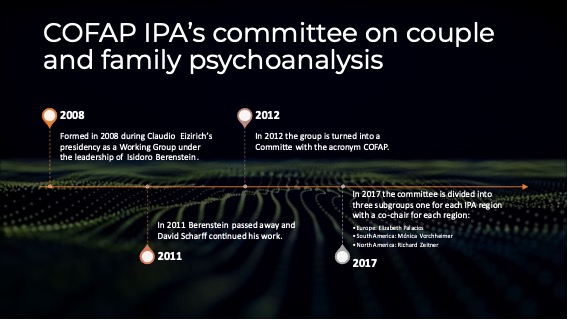
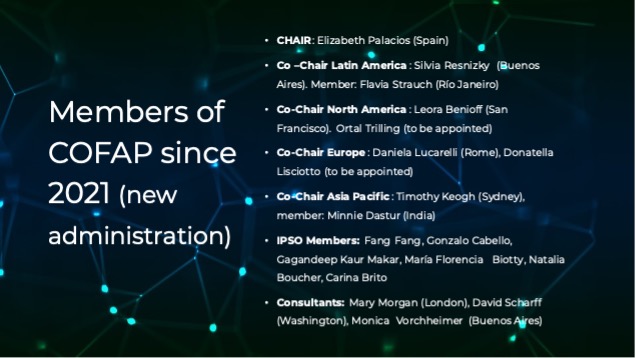
In order to address these objectives the committee has organized several congresses in different IPA regions since 2011:
2011 Meeting at Washington DC
2015 First IPA/FEPAL CONGRESS ON COUPLE AND FAMILY PSYCHOANALYSIS. Buenos Aires
2016 Conference in Washington DC
2017 Second Psychoanalysis of Families and Couples Perspectives Around the World. What do we think and what do we do with couples and families in psychoanalysis. Madrid
2018 Meeting in Washington DC
2019 Third Psychoanalysis of Families and Couples Perspectives Around the World. Setting Variations: Psychoanalysis with Families and Couple. Naples.
2019 Conference at Tavistock Relations, London.
2020 Seventh International Congress on Couple and Family Psychoanalysis. Who is the Couple? Who is the Family? Creating New Therapeutic Perspectives.
2021 China’s Couple and Family Online Congress
2023 First International Encounter on Couples and Families 28-29 April. What do we do today in Clinical Work and Training? Organized by COFAP/EFPP/ AIPCF
Our next programmed meeting in person will be in 2025 in Río de Janeiro, Brazil.
Since 2011 we have had a two-day pre-congress meeting before the IPA congresses, and in 2023 we had a pre-congress meeting in the Asia Pacific congress at New Delphi as well as presence in panels within the congress.
We invite all to participate in our pre-congress meeting at Cartagena’s IPA Conference in July 2023.
CURRENT COMMITTEE
CHAIR: Elizabeth Palacios, Madrid Psychoanalytic Association (APM) Zaragoza
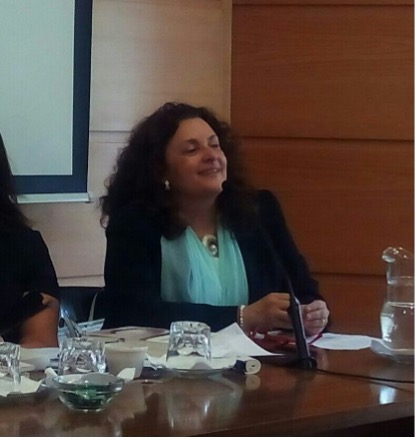 Co-Chair for Latin America: Silvia Resnizky,
Co-Chair for Latin America: Silvia Resnizky, Buenos Aires Psychoanalytic Association (APdeBA)
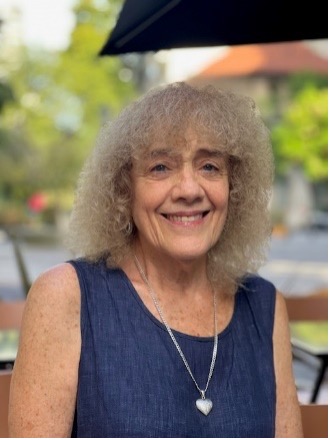 Co-Chair for Europe: Daniela Lucarelli
Co-Chair for Europe: Daniela Lucarelli. Italian Psychoanalytic Society (SPI) Rome
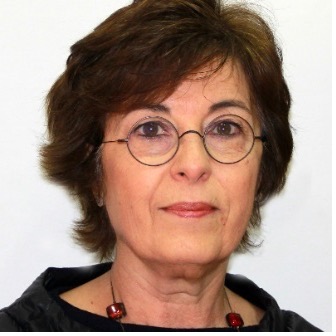 Co-Chair for North America: Leora Benioff.
Co-Chair for North America: Leora Benioff. American Psychoanalytic Association. San Francisco
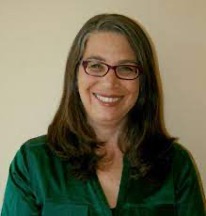 Co-Chair for Asia Pacific: Timothy Keogh.
Co-Chair for Asia Pacific: Timothy Keogh. Australian Psychoanalytic Association. Sydney
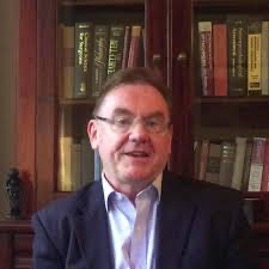 Books edited by COFAP
Books edited by COFAP
Edited by David Scharff and Elizabeth Palacios in 2015. In English, initially by Karnac now by Routledge.
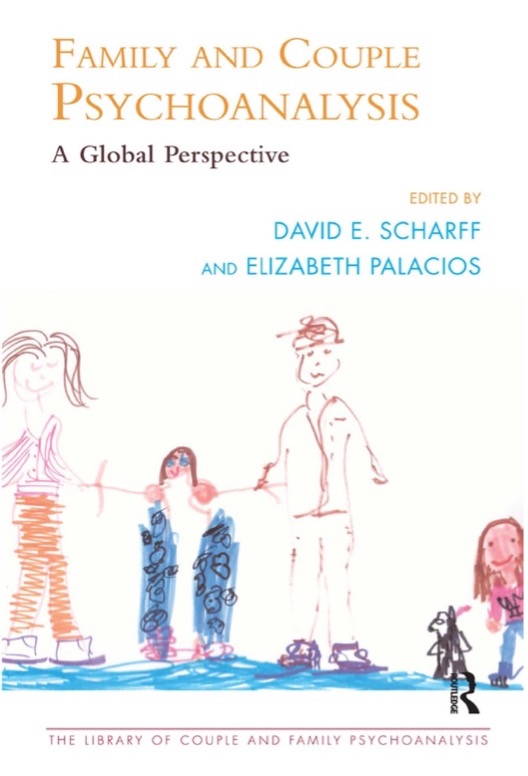
Edited by David Scharff and Mónica Vorchheimer in 2017. In English by Routledge and in Spanish by Biebel (Buenos Aires).
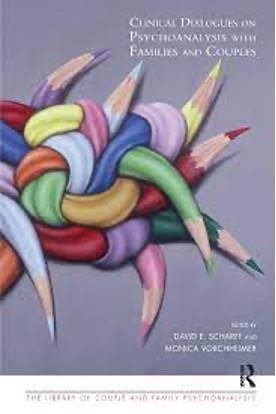
Edited by Timothy Keogh and Elizabeth Palacios (2019), by Routledge in English
And by Psimática in Spanish (Madrid)
